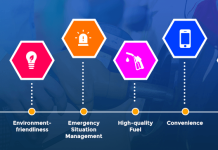What is virtual privacy network (VPN) and why is it so hot? The term VPN has been a common topic of conversation in recent years. It is a good thing, because VPN technology wasn’t a new concept in high-tech. Today, it is an essential tool. VPN technology protects your online privacy. What is VPN technology and how can you use it
This guide covers everything you need to know regarding a VPN. This article will help you understand all the issues associated with this technology.
What is a VPN and how does it work?
VPN stands to represent ” Private Network“, which literally means “virtual personal line”. Particularly, information that is exchanged via public networks, such as Wi-Fi free of charge, can be eavesdropped on and falsified. Eavesdropping and falsification are just two examples. You should not share personal information with anyone else that could expose you to grave risks.
VPN would be a good option. You can protect your information from falsification and eavesdropping threats by creating a virtual leased-line on the Internet.
Think of the situation when you are trying to drive on a dangerous road. It is unsafe to walk alone on that road. If you have a taxi that can take you there, it is possible to pass without any danger. A VPN is an equivalent to a taxi. It is a method that allows secure information communication while protecting you from various risks.
What does a VPN do for you?
Simply put, a VPN connects to your computer or smartphone through an encrypted virtual tunnel to remote servers through which you can access the Internet. This server can be anywhere. Your ISP may be aware that you are using VPNs, but they will not know for what purpose. You become a foreigner to the authorities and websites you visit.
How VPN works
VPN is a Virtual Private Network that protects your data while it travels. Use VPN software to connect to the Internet as normal. Your first connection is encrypted to the VPN provider. This then forwards your request to the Internet. Your data will not be revealed to the public. The VPN provider will assign a new IP to you, the user, because your connection request is sent through their server. This protects the IP address that is used to identify your device. The Internet request you make can’t be traced back. Your computer, laptop or other device is virtually invisible thanks to the virtual private network.
What is a VPN Tunnel?
The VPN works in a similar way to the image of the tunnel: nobody outside a road tunnel can see or affect traffic inside. The encrypted connection means that no one else can see what is being transmitted. An attacker may be able to recognize that a VPN connection has been established, but can’t see what data is being transmitted.
Advantages and disadvantages
What is the benefit of VPN?
Although the primary purpose of VPNs is to improve security, there are many other benefits.
- You can monitor wireless networks and reduce the chance of tampering by looking at them.
- No matter how far you live, you can create a pseudo LAN.
- Because access is anonymized there are no worries about IP addresses being known by third parties.
- You can achieve security comparable to a leased phone line for a fraction of the cost
What are some of the drawbacks to VPN?
Although VPNs have many benefits, there are also some drawbacks. To understand ” What Is a VPN?” you must also understand their disadvantages.
- VPN doesn’t mean perfect security
- Reliable VPN server must be chosen.
- VPNs can help you prevent snooping but not detect malware.
- Unsatisfactory communication speed might not be possible
- Mobile devices can drain a lot battery
VPNs are not recommended for communication that has bandwidth guarantee. They can become a bottleneck.
VPN Service
For example, there are many VPN services available today. expressVPN, nordVPN, avastVPN, holaVPN, cyberghostVPN, nortonVPN, ucsdVPN, Surfshark, ProtonVPN, IPVanish etc.
Top VPN services
There are best-vpn, which are the best.

























